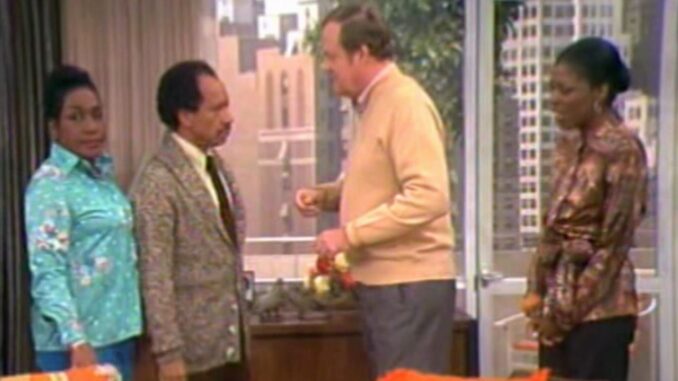
When The Jeffersons first aired in 1975, it didn’t just entertain – it made a bold statement. The iconic sitcom, a spin-off from the beloved All in the Family, broke new ground by showcasing an African American family’s success story in a way that was both humorous and groundbreaking for its time.
In an era when TV often relegated Black characters to stereotypes or limited roles, The Jeffersons introduced George and Weezy Jefferson – a dynamic couple who had “moved on up” to a luxurious apartment in Manhattan. For many viewers, it was the first time they had seen Black characters portrayed as wealthy, ambitious, and unapologetically confident. George, played by Sherman Hemsley, was an ambitious businessman who owned a chain of dry cleaning stores, while his wife Weezy, portrayed by Isabel Sanford, was a strong and independent woman who pushed back against the societal norms of the day.
The show tackled issues of class, race, and social mobility with a refreshing honesty, using humor to confront serious topics. George’s constant clash with his affluent neighbors – particularly his rich, bigoted neighbor, Mr. Bentley – was a clever commentary on racism, classism, and the complexities of identity for African Americans striving for success in a predominantly white society.
But what made The Jeffersons even more groundbreaking was its ability to remain relevant in the face of changing cultural norms. It was a reflection of a time when Black people were breaking barriers in all areas of life – from politics to entertainment to business. And by placing a successful Black family at the center of a mainstream sitcom, it forced the audience to reconsider their preconceived notions about race and class.
In many ways, The Jeffersons was ahead of its time. It gave viewers a new vision of what Black success could look like and provided a powerful platform for African American voices in television. While many shows of its era struggled to give Black characters complex, multidimensional roles, The Jeffersons embraced the full humanity of its characters, creating a legacy that would influence generations of TV shows to come.
Ultimately, The Jeffersons was more than just a sitcom – it was a cultural milestone that pushed boundaries, sparked conversation, and proved that Black stories and voices deserved to be front and center on the screen. And that, in itself, was revolutionary.